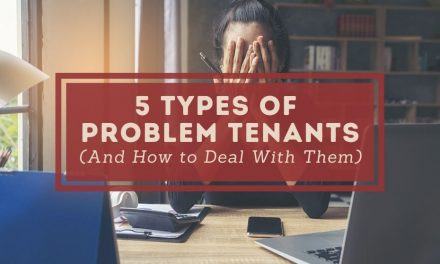 Every year, new landlords expect their tenants to complete basic yard work, and every year, new landlords are disappointed. Most renters don’t concern themselves with outdoor maintenance; even if yard care is part of the rental agreement, few tenants understand the effort landlords expect to keep a yard looking attractive and vibrant.
Every year, new landlords expect their tenants to complete basic yard work, and every year, new landlords are disappointed. Most renters don’t concern themselves with outdoor maintenance; even if yard care is part of the rental agreement, few tenants understand the effort landlords expect to keep a yard looking attractive and vibrant.
A particular point of contention on most rental properties is the lawn. Though it might look effortless, verdant grass requires obscene effort to maintain, most of which must occur regularly and often. Because a good-looking lawn is a serious asset for rental properties, it can be dangerous to leave its care up in the air. Instead, landlords and property managers should consider the following options for lawn care responsibility.
Full-Service Lawn Care Providers
When the landlord assumes sole responsibility for lawn care, it is a full-service lawn care agreement. Often, this type of agreement extends to all aspects of outdoor maintenance, including raking leaves, shoveling snow, picking weeds, and other typical yard care activities, as well as the various requirements to keep a lawn happy and healthy, such as fertilization, aeration, mowing, reseeding, and more.
A landlord with one property might not find it terribly difficult to complete these tasks personally, but it can be backbreaking work for landlords with a handful of yards to watch over. Therefore, landlords with full-service agreements might prefer to hire lawn care professionals to manage the work, instead. Partnering with one provider definitely saves a landlord time, but it can also save money, as lawn care professionals have more knowledge and are better equipped to give lawns what they need, like pre-emergent weed killer and pesticides. This can in turn lead to improved energy efficiency and lower utility bills for tenant and landlord alike.
Plus, most landlords who employ a professional service can reasonably add the cost onto the tenant’s rent, thus recouping any potential losses. Ultimately, a professional will keep a property’s lawn looking good year-round, whereas less-experienced landlords and tenants might allow the lawn to die a slow death.
Self-Service Lawn Care Agreement
In contrast, a self-service lawn care agreement stipulates that tenants are responsible for the entirety of lawn maintenance. This type of agreement provides a few benefits: Landlords don’t worry about added costs of lawn services, and tenants don’t worry about added costs to their monthly rent. Additionally, tenants can avoid being surprised by the intrusion of yard workers and schedule the lawn care for precisely when the lawn needs it.
Unfortunately, this type of agreement rarely yields satisfying results. Tenants may fail to adhere to the agreement, and the lawn suffers ― sometimes irreparably. It is much more expensive to replace a dead lawn than to maintain a living one. Worse, some properties may fall under the jurisdiction of strict homeowners’ associations or municipalities that can levy penalties against unkempt yards, and homeowners ― that is to say landlords ― are responsible for any fines. A self-service agreement is only viable if a landlord is confident in the trustworthiness of his or her tenants.
A-la-Carte Lawn Care Collaboration
If a full-service agreement isn’t possible and a self-service agreement is untenable, landlords and tenants might consider working together to care for the lawn. A-la-carte agreements divvy up the duties of yard care so both parties have an appropriate level of responsibility. The key is to divide the tasks so both tenants and landlords feel a lessened burden.
For example, tenants might be required to mow the lawn every other week, but lawn care professionals will complete more advanced jobs that occur less frequently, like fertilizing and reseeding. Alternatively, tenants might water the lawn adequately while the landlord assumes payment of the water bill. In both cases, the landlord doesn’t assume massive regular costs, and the tenant doesn’t devote large chunks of time to lawn care.
Conclusion
No matter what type of lawn care landlords and their tenants decide upon, it is vital that both parties get the agreement in writing. The lease is the only document with legal clout, so what the lease states in regards to lawn care matters. In instances when the lease is silent, the landlord is usually responsible for maintenance of common areas, which means landlords have no legal recourse if tenants allow their lawns to die. Landlords who love their lawns would do best to know what kind of care they can expect before allowing the lease to be signed.







please call me having problems logging on
Hi Lynell,
Will you please contact your client success team at support@rentecdirect.com or call at 800-881-5139. Kevin will be in the office until 5pm Pacific today to help.
Thank you so much for sharing this information, Tiffany! It is great to spread this information so people are aware of their own lawn care stipulations
Most landlords that I have spoken to are more than willing to hire lawn care and landscaping services over doing them personally. There’s some great information in this article for anyone who is renting.
One of the best and most employed methods used to maintain a lush lawn here in Boca Raton, FL is to feed the lawn seasonally. At the beginning of each season we use a limited amount of fertilizer to strengthen the grass roots which helps prevent the damaging effects of pests and harsh weather.
Again, great information source here. Check out Bocaratonlandscaping.org for more lawn and landscaping tips!
I think it is best to hire a lawn treatment company to take care of the fertilizing, pesticides, and weed control and then come to an agreement about who is going to be responsible for the mowing, edging, and other lawn care that needs to be done. A professional service will know exactly what the lawn needs to flourish and stay healthy.
This is such a good point. We are thinking about renting a property out and I had never thought about the lawn care aspect. Thanks for the info!
There is a new provincial lease that excludes gardening. Owner cannot make a tenant to yardwork.
I would be curious to see an example of this.
My lease says landlord is responsible for lawn mowing. He says he doesn’t do it and it has cost me about $30 a month. I’m on a fixed income. What can I do.
I would point out the section of the lease which states the property manager is supposed to provide lawn care. Ask the PM to reimburse you or if he will give you a rent discount for the lawn care you are providing.
Our landlord hires it out, but here they show up at 7:25am ever monday to wake more than 300 people up. is this legal?
Your city or county probably has laws regarding city wide quiet hours. As long as the maintenance people are coming outside of the quiet hours, it is probably legal. I think it’s very common for lawn and maintenance workers to show up early.
If I don’t have the money to have a sprinkler system installed in TX and I have provided hoses and sprinklers for the tenants to use, how do I get the tenants to water? I have lawn maintenance addenda that address all the requirements. Any advice would be appreciated.
If it’s in the lease, then you can send them notices about breach of contract, per your state’s laws, reminding them of the consequences for not watering the lawn and breaking lease terms.
All my rentals are student housing in residential homes. We appoint on member of the group to be responsible to make sure the sprinklers are working properly, that the landscapers come on schedule etc. a $25 rent credit is given monthly to this person, now should the lawn start dying and having issues, the guest responsible will not continue to get the credit, and the water allowance of $25 per month from the landlord will stop. and as an added measure- it; in all leases should the lawn not be care for all guests are financially responsible to restore it to the same condition at move in.
Great advice, thanks
You’re welcome, Isabelle!
Landlord was doing the lawn care for which I was paying a monthly fee. The last 2 months he did not mow, after I had paid him, so I quit paying. Now he says I’m responsible for lawn care and if the county issues a fine I have to pay it, yet there is nothing in the lease specifying anything about lawn care and such. So who is responsible?
I wasn’t aware of any of these lawn care-related rules, to be honest. Now that I am, though, I will follow them for sure!
Proper lawn care can be essential for maintaining property value. What rules or guidelines should homeowners follow to ensure their lawn care practices are effective and sustainable?